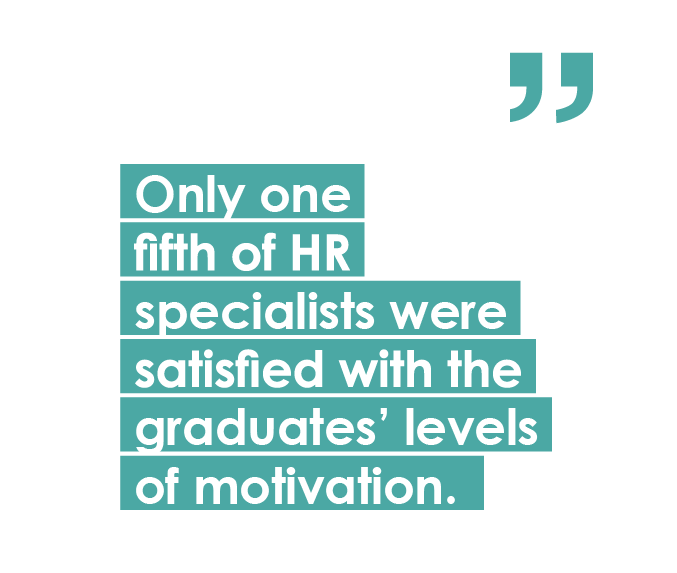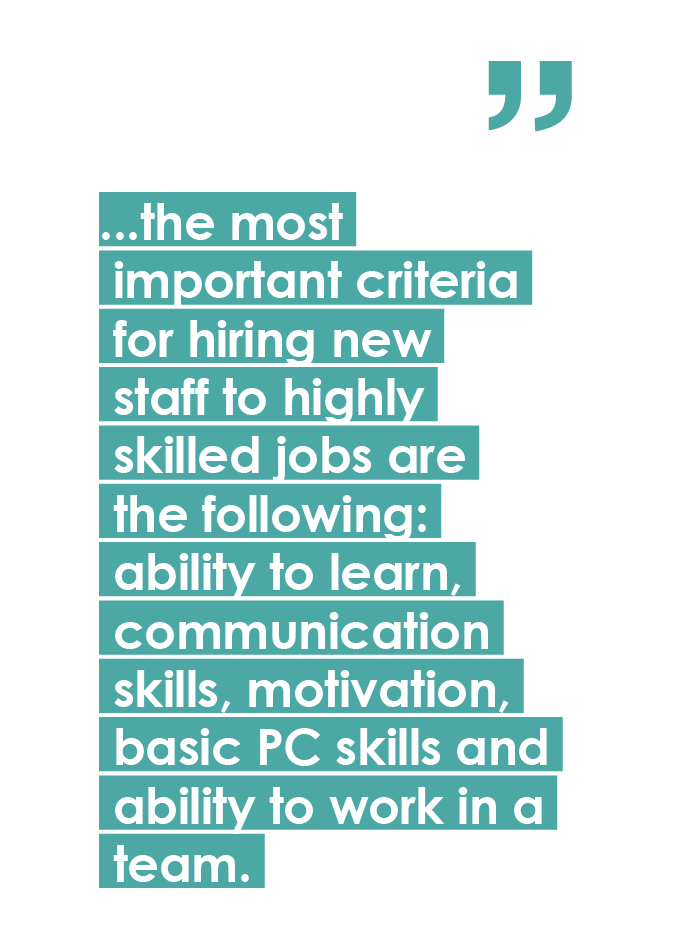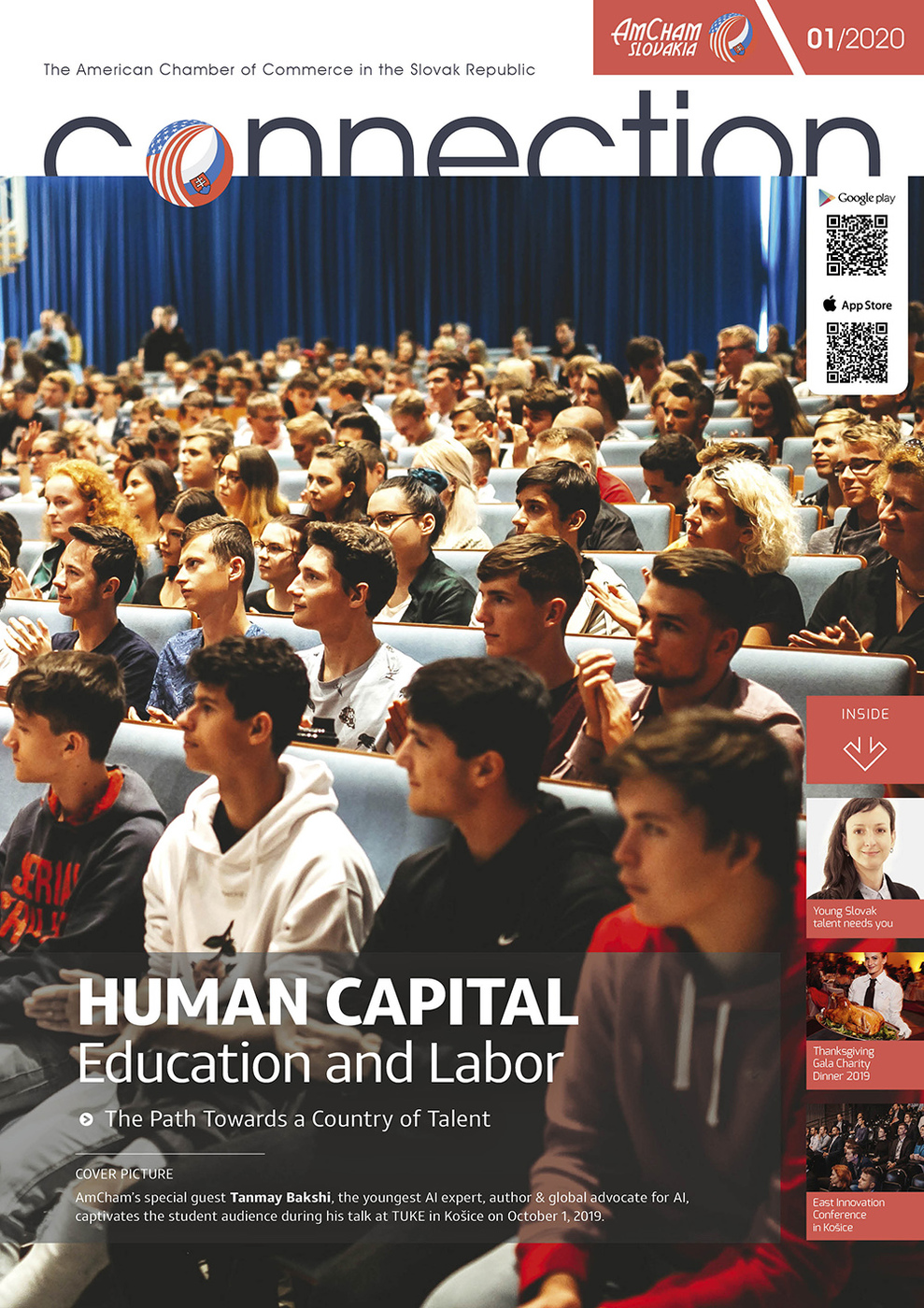About the initiative or what we have done so far
The “Learning Makes Sense” initiative aims at reversing these trends. To achieve this goal, it is necessary to propose a change of the whole education system based on data and good practices from Slovakia and abroad.
The first step towards this change was drafting the vision of education in Slovakia. This vision presents the ideal state we want to approach in the future, and provides a prism that enabled us to distinguish the problems of our education system and their solutions. The second step consisted of analyzing the current state of the Slovak education system. This fall we presented the Analysis of Findings about the State of the Education System in Slovakia in front of more than 350 stakeholders in education in Bratislava, Banská Bystrica and Košice. The aim of the analysis is to describe the current situation and identify the major problems in the education system, together with their causes, relationships and impacts.
The analysis is based on an extensive qualitative and quantitative data collection carried out in 2017–2019. The aim of the data collection was to find out what prevents us from achieving the envisaged state as defined in the education vision. Problems related to education policy as well as its implementation in various contexts were examined. In total, 656 respondents from among all the important actors in the education system as well as from among employers took part in 421 individual and group interviews. The quantitative survey aimed to verify the scope of the problems identified, and in total 15,322 respondents participated, from various positions in pre-primary up to higher education levels, as well as business professionals in human resources (HR). The scope of the analysis is unprecedented in Slovak history.
 Since the whole education system should be internally consistent we did not analyze it through levels of education but through five selected areas: customized support for all learners; training and development of teachers and professional staff; education content and methods; education openness and permeability; and governance and financing in education. In cooperation with the Central European Labour Studies Institute (CELSI) we also analyzed employers’ experience with employing graduates with high/middle/low qualifications on the Slovak labor market.
Since the whole education system should be internally consistent we did not analyze it through levels of education but through five selected areas: customized support for all learners; training and development of teachers and professional staff; education content and methods; education openness and permeability; and governance and financing in education. In cooperation with the Central European Labour Studies Institute (CELSI) we also analyzed employers’ experience with employing graduates with high/middle/low qualifications on the Slovak labor market.
Main findings regarding the fulfilment of the employers’ expectations by graduates
Concerning the desired employee profile, the analysis of quantitative and qualitative data shows that the most important criteria for hiring new staff to highly skilled jobs are the following: ability to learn, communication skills, motivation, basic PC skills and ability to work in a team. Employers consider physical capabilities, manual skills, as well as formal education and professional certificates and licenses attained as the least important. For highly skilled jobs, most employers hire graduates without any work experience in the field. Although the majority of companies claim that graduates do not meet their expectations regarding work experience, during the recruitment process, they do not consider this requirement to be a priority. Furthermore, most employers state that graduates usually comply with their priority criteria only partially or not at all. Only one fifth of HR specialists were satisfied with the graduates’ levels of motivation.
The analysis has also revealed that for middle and low-skilled job positions, employers consider as most important the same criteria as in the case of the high skilled positions. The key criteria include: ability to learn, ability to work in a team, motivation, and ability to adapt to changes. Employers place the lowest emphasis on foreign language skills, advanced PC skills, professional certificates and formal education attained. Graduates comply with the above-mentioned key requirements only partially or not at all, according to the majority of employers. Graduates applying for middle and low-skilled jobs comply the least with requirements on work experience in the field. For these job positions, employers requesting a certain level of formal education attained usually tend to request work experience in the specific field as well. More information on key findings available in English can be found here: https://en.todarozum.sk/analysis/
 Where do we go from here?
Where do we go from here?
Recently, we have launched a platform on our website for collecting and sharing best practices across all levels of the education system in Slovakia. The best practices from this platform as well as those collected during our fieldwork will help us to formulate recommendations how to tackle the problems identified within our analysis. The reform proposals will be presented to the public at the end of February 2020. The ultimate goal of the initiative is to help the new government formed after the parliamentary election in 2020 in preparing and delivering a change of the education in Slovakia that will reflect the needs of all learners and help them to fulfil their potential.




Follow us